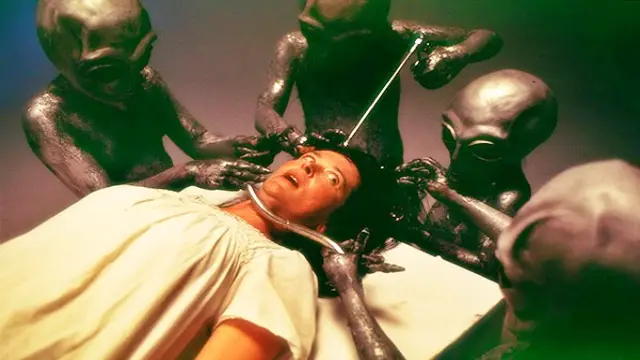nn
n
n
n
nYankee Doodle came to town,n
nRiding on a pony,n
nHenstuck a feather in his cap,n
nAnd called it Macaroni.n
n
n
n A famous enough littlenrhyme, if somewhat curious. It stems from the Seven Years War and it thought tonrefer to the mockery of the colonial American troops by their Britishncounterparts. Linguists are divided upon the origin of the word Yankee,nas applied to an American, although it almost certainly is of Dutch origin,npossibly an Anglicisation of Jankee meaning Little Johnny.nSimilarly, Doodle most likely comes from the German dudel meaningna simpleton. He rides a pony, not a horse, and he puts a feather in his cap,nthinking this is enough to make him look like a macaroni. He puts on airs andngraces, he reaches above his station but it is not enough and he merely looksnridiculous and affected. Furthermore, in aping a macaroni he looks effeminatenand ineffectual.
n
n
n
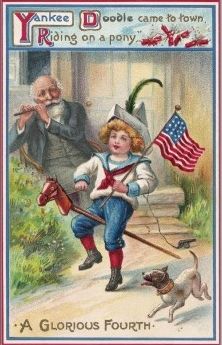 |
| Yankee Doodle |
n
n
n
n‘A macaroni’, I hear you ask, ‘What has all this tondo with pasta’? Well, in the past, it was usual for the sons of the Englishnwell-to-do to complete their education by taking the Grand Tour, a trip to thenmust-see locations of continental Europe. Some of these young gentlemenndeveloped a taste for Italian pasta and brought the habit of eating it backnwith them to England. At their clubs they would dine on a dish of macaroni,nsomething rare in England at the time, and these became known as macaroninclubs, the name becoming applied to the diners themselves.
n
n
n
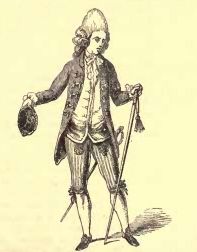 |
| A Macaroni |
n
n
n
nThey affected othernItalianate ways, in manner, dress and speech, and became infamous for their foppish,nexaggerated fashions. From about 1760, the word Macaroni supersedednother such designations as Buck, Blood, Beau, Gallant, Dandy, Exquisitenor Swell. The macaronis were noted for their excessive addiction tongambling and for their affected dress, wearing improbably fancy wigs, carryingnlong canes decorated with tassels, nosegays, eyeglasses and toothpicks. Thenfashion took London by storm; everything was à la macaroni, every song,nevery dance, every amusement.
n
n
n
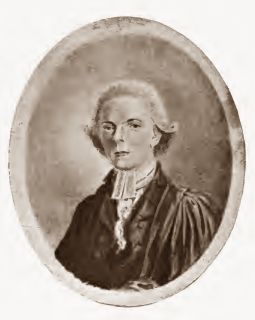 |
| Dr William Dodd |
n
n
n
nThere were turf macaronis, military macaronis,ncollege macaronis and every other example of the macaroni race – not leastnthere was Dr William Dodd, the Macaroni Parson. He was the son of countrynclergyman of the same name and a graduate of Clare Hall, Cambridge who came tonLondon in about 1750. He had literary aspirations and tried his hand at comedicnplays although his friends persuaded him to resume his clerical career and henwas ordained as a deacon and took the position of curate at West Ham, Essex. Henapplied himself to his new life with enthusiasm and quickly became a popularnand successful preacher, with a growing reputation. He preached the inauguralnsermon at the opening of Magdalen House, an occasion described in a letter tonGeorge Montague dated January 28th 1760 by Horace Walpole, andnDodd’s reputation for his charitable works received a further boost.
n
n
n
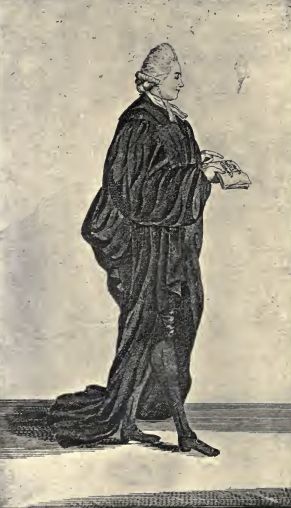 |
| Dr Dodd – The Macaroni Preacher |
n
n
n
nHe becamenchaplain there, and preached moving sermons to Princes, Lords and Ladies whonwere moved to tears by his words (Dodd wrote a poem to the tears shed by LadynHertford). He began to publish a number of edifying books and became chiefnwriter of the Christian Magazine, as well as contributing a weeklyncolumn to the Public Ledger, and writing a commentary on the Bible. Inn1763, he was appointed chaplain to the King and to Bishop Samuel Squire,nthrough whom he was also made tutor to Philip Stanhope, nephew of LordnChesterfield.
n
nIn 1751, Dodd had married Mary Perkins, a servant girl whom itnwas rumoured had once been the mistress of the Earl of Sandwich, and in 1766nshe received an annuity of £1,500 and was given a lottery ticket that won anprize of £1,000. Dodd invested the money in opening a chapel in Pimlico, callednCharlotte Chapel after the Queen, and attracted a fashionable congregation (itnwas at this time he became known famously as the Macaroni Preacher), whichnseems to have turned his head, as he began to write ‘dainty verses’ tonladies, attended city feasts and ran up debts, although no scandal was, as yet,nattached to his name.
n
n
n
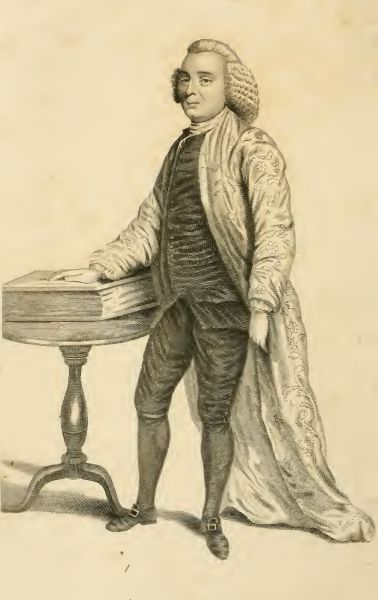 |
| The Macaroni Preacher |
n
n
n
nThat came in 1774, when Mrs Dodd wrote an anonymousnletter to Lady Apsley, wife of Henry Bathurst, the Lord Chancellor, offeringn£3,000 and an annual payment of £500 thereafter, if Dodd was given the livingnof St George’s, Hanover Square, said to be worth £1,500 per year. The letternwas quickly traced back to the Dodds, and William was struck off the King’snlist of chaplains. He fled to Europe, where his former pupil, now LordnChesterfield in his own right, received him at Geneva and treated him well. He returned tonLondon but growing debts caused him to sell Charlotte Chapel and on February 1stn1777, he offered a bond worth £4,200 in the name of Lord Chesterfield to anstockbroker named Robertson. This bond was transferred to the lender’snsolicitor, who found some ink blots on it so had a clean copy made, which hentook to Lord Chesterfield to have it signed. It was revealed immediately thatnthe original bond was a forgery and warrants were issued for the arrest of Doddnand Robertson.
n
n
n
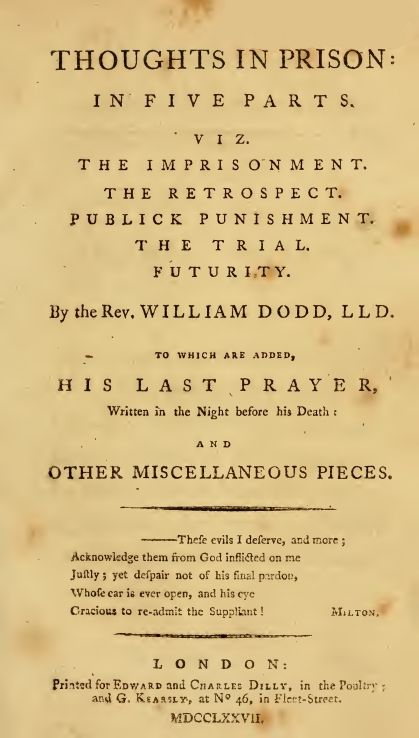 |
| Dr William Dodd – Thoughts in Prison – 1777 |
n
n
n
nDodd returned £3,000 and made arrangements were made to returnnthe rest, apparently to the satisfaction of all concerned, but the Lord Mayorninsisted that the case be brought to trial. Dodd was brought to trial onnFebruary 22nd, and was found guilty of forgery although a legalnpoint delayed the passing of sentence until mid-May. In this interim, manynattempts were made to obtain a pardon for Dodd, a petition with 23,000nsignatures was presented and many influential people, including Dr SamuelnJohnson, intervened on Dodd’s behalf (his case was the cause of Dr Johnson’snfamous remark,
n
n
n
n“Depend upon it Sir, when a man knows he is to be hanged in anfortnight, it concentrates his mind wonderfully”).n
n
n
n
n
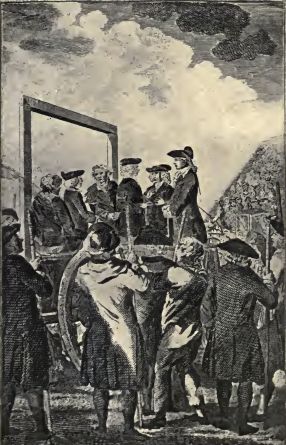 |
| Dr Dodd hanged at Tyburn |
n
n
n
nDodd himself wrote Thoughtsnin Prison and preached sermons to the inmates of Newgate Prison but thenKing, swayed it was said by Lord Mansfield, eventually decided to carry out thensentence. On July 22nd 1777, Dr William Dodd, the Macaroni Preacher,nwas conveyed to Tyburn and was hanged by the neck until he was dead.
n
n
n
nHe was thenlast man to be hanged at Tyburn for the crime of forgery.
nnn
n
n
nnnn




















